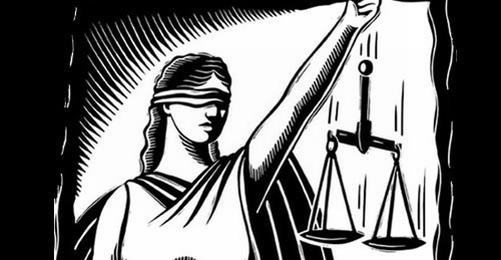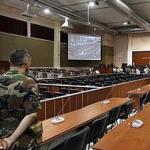The Special Rapporteur on the Independence of Judges and Lawyers, Gabriela Knaul, visited Turkey from 10 to 14 October 2011 at the invitation of the Government and included Ankara, Istanbul and Diyarbakir. Her preliminary report was now also published in Turkish.
The main purpose of the visit was to assess a series of judicial reforms recently undertaken by the Government. Other issues assessed were access to justice, the availability and effectiveness of legal defence and the legal profession, as well as fair trial guarantees.
The independence of the Judiciary
"The 2009 Judicial Reform Strategy and the Constitutional amendments adopted in 2010 have represented, as a whole, positive steps to strengthen the structural independence of the judiciary. Nonetheless, challenges remain in some areas to guarantee, in practice, the effective independence and impartiality of judges, prosecutors and lawyers. In addition, the implementation of these reforms should be accelerated", the Special Rapporteur said.
It was stressed "that it is the duty of all governmental and other institutions to respect and observe the independence of the judiciary so as to avoid any kind of political, institutional or social control or influence which could affect their capacity to decide on matters independently and impartially, on the basis of facts and in accordance with the law".
"Women are increasingly entering into the judicial career, though I have not seen many appointed at higher levels, which is an element to be addressed".
Access to justice
"Almost unanimously judges and prosecutors have called my attention to the issue of workload and a backlog of cases, which is of course among the main causes of delays in the proceedings. This structural problem also affects the citizens' effective access to justice, as justice delayed is justice denied" according to Knaul.
Procedural guarantees in anti-terrorism legislation
"The investigation, prosecution and trial of cases related to terrorism and organized crime is within the competence of the so-called Heavy Penal Special Court or Heavy Penal Court with 'special authority' (...). I am particularly concerned at the lack of respect for fundamental procedural guarantees in these cases, and notably at the restrictions to the right to defence".
"Furthermore, there is also a limitation of the number of lawyers that can assist an individual charged under the anti-terrorism legislation and access to documents pertaining to the case can be equally restricted".
"Furthermore, there is also a limitation of the number of lawyers that can assist an individual charged under the anti-terrorism legislation and access to documents pertaining to the case can be equally restricted".
Lawyers
"Another concern that I heard quite regularly is that, in the daily performance of their duties, lawyers are not treated at the same level as judges and prosecutors".
"Another example of the difficulties that lawyers face to properly carry out their work are the obstacles posed to the effective performance of their professional functions by the restrictions mentioned above, such as limitations to access case-files, non-disclosure of evidence, delays in the contact with their clients, and undue identification of the lawyer with his/her clients or the clients' causes as a result of discharging their functions. (...)" (ÇT/VK)
Source: United Nations Human Rights.
Click here to view the full report.







